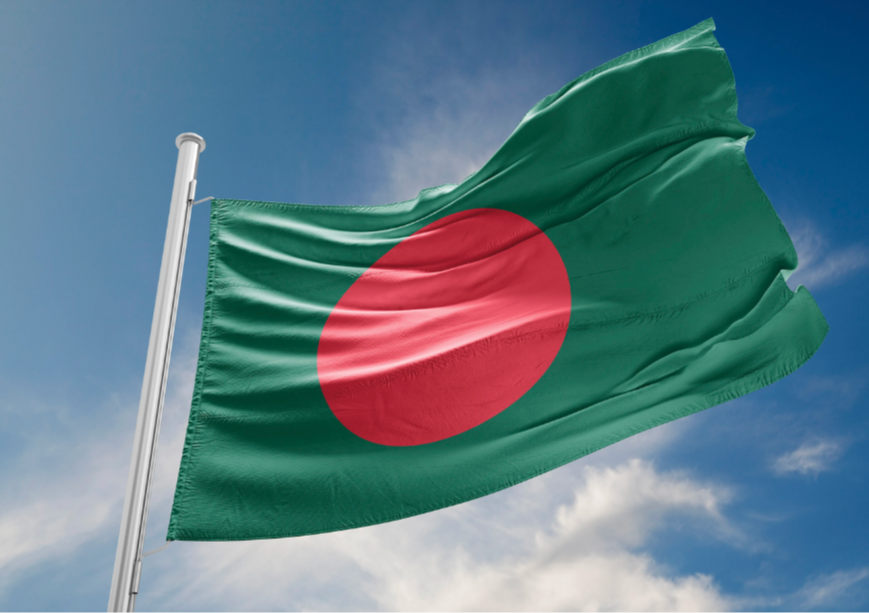
Media reports suggest that during the latest Ramadan celebrations, there was a drop in the demand for Indian goods in Bangladesh due to the “India Out” campaign. Spearheaded by the main Opposition—the Bangladesh Nationalist Party (BNP), the India Out campaign is making inroads in the country following Sheikh Hasina's re-election as Prime Minister for a fourth straight term in January 2024. Despite allegations primarily directed at the Awami League (AL) for electoral misconduct, India is drawing flak for allegedly undermining Bangladesh's democratic aspirations and interfering in its internal affairs. Drawing lessons from the Maldives’ India Out campaign, social media influencers and activists are mobilising public sentiments against India through hashtags like #IndiaOut and #BoycottIndia. The campaign seems to be a desperate attempt by the BNP to further their political prospects in the country.
Politicising “India Out”
The BNP has had a rocky relationship with India. It has, in the past, used anti-India rhetoric and policies to harm Indian interests and further its domestic political goals. However, its current avatar—the “India Out” campaign seems to have been inspired by a similar movement in the Maldives, led by the then-Opposition and now ruling coalition, the Progressive Alliance. Similar to the Maldives’, the Opposition in Bangladesh is criticising the government for damaging the country’s democracy and having close relations with India. They are also denouncing India for alleged electoral fraud, interfering in the country’s domestic politics and institutions, and not resolving bilateral irritants between both countries. Religion is also being used as a pretext to criticise India and Indian policies.
The amalgamation of religion, nationalism, anti-Indian, and anti-incumbency sentiments through the India Out campaign is likely being used as a toolkit to weaken Hasina’s legitimacy and governance.
The BNP is keen on exploiting the country’s polarised politics by promoting nationalist sentiments against Sheikh Hasina and India. After having boycotted the 2014 and 2023 elections and a bad performance in the 2018 elections, it seems that the BNP is now laying the ground for the next elections with this campaign. The amalgamation of religion, nationalism, anti-Indian, and anti-incumbency sentiments through the India Out campaign is likely being used as a toolkit to weaken Hasina’s legitimacy and governance. This moment will likely attract the BNP loyalists, people disenchanted with the current government, and also appease hardliners like Jamaat-E-Islami and Hefazat-e-Islam, who oppose Sheikh Hasina and have been involved in anti-Indian violence before, as seen in 2021.
The economic dimension of the campaign
The call for the boycott of Indian goods and targeting India’s economic relations with Bangladesh further aims to hinder Bangladesh’s economic growth—a crucial success story of the Awami League. In the past five decades, Dhaka has undergone a remarkable economic transformation, progressing from one of the world's poorest nations in 1971 to becoming a lower-middle-income country by 2015. Bangladesh is poised to graduate from the United Nations' Least Developed Countries (LDC) list by 2026. The government has embraced Vision 2041, aiming to eradicate extreme poverty, elevate the country to upper-middle-class status by 2030, and attain high economic nation status by 2041.
Bangladesh is a US$400-billion economy, and as its economy continues to grow, so will its trade with India. Criticising India in the context of the India Out campaign is akin to faulting the Awami League, which is credited with the nation's economic prosperity. The India Out campaign is leveraging and politicising these economic ties. Over the past 27 years, India's exports to Bangladesh have exhibited an annualised growth rate of 10 percent, increasing from US$1.05 billion in 1995 to US$13.8 billion in 2022.
Criticising India in the context of the India Out campaign is akin to faulting the Awami League, which is credited with the nation's economic prosperity.
India’s geographical proximity to Bangladesh naturally results in a trade advantage for both nations. Dhaka holds the position of New Delhi's primary trade partner in South Asia, while New Delhi ranks as Dhaka's second-largest trade partner in Asia. India stands as Bangladesh's foremost export destination in the continent, with approximately US$ 2 billion worth of Bangladesh exports to India recorded in FY 2022-23. The total bilateral trade between the two nations for the same fiscal year amounted to US$ 15.9 billion. Bangladesh heavily depends on imports from India, with India exporting US$13.8 billion worth of goods to Bangladesh in 2022.
To fuel their economic growth, both countries are also focusing on connectivity. On 1 November 2023, the prime ministers of both countries virtually inaugurated three Indian-assisted projects in Bangladesh. One of the projects is the Agartala-Akhaura railway project, which will enhance connectivity between India and Bangladesh and foster increased trade between the two countries. New Delhi and Dhaka have also beefed up their cooperation in the railway sector. Cooperation in the power and energy sector has become one of the hallmarks of India-Bangladesh relations. Both countries inaugurated the India-Bangladesh Friendship Pipeline in 2023. Moreover, in a first, India, Nepal, and Bangladesh are working on a tripartite power trade deal under which Nepal will supply up to 500 megawatts (MW) of hydropower to Bangladesh using India’s transmission line.
Bangladesh currently grapples with significant economic hurdles, including escalating inflation, energy deficiencies, a deficit in the balance of payments, and a shortfall in revenue.
That said, Bangladesh currently grapples with significant economic hurdles, including escalating inflation, energy deficiencies, a deficit in the balance of payments, and a shortfall in revenue. The country exports raw cotton and non-retail pure cotton yarn from India to support its Ready-Made Garment (RMG) industry, credited with driving the country's economic growth. Diversifying exports beyond the RMG sector and addressing infrastructure gaps represent some challenging economic tasks. Furthermore, projections indicate a deceleration in real GDP growth for FY24 due to ongoing measures to suppress imports, disrupting economic operations. To realise its vision of achieving upper-middle-income status by 2031, Bangladesh must prioritise several strategic initiatives with India’s assistance. It is here that the BNP sees an opportunity. Politicising India’s economic relations and trade hinders the country’s growth, harming the government’s credentials.
Finding new partners:
The BNP is also using the India Out campaign to make external allies that could benefit the party in the next elections. During the January elections, India and China asserted that Bangladesh’s elections are a matter of internal affairs. Sheikh Hasina’s balancing and “Friendship with all, Malice to none” policy seems to have kept Beijing and Delhi on her side. However, the United States (US) was being lobbied by the BNP to pressurise Hasina to hold free and fair elections, a move that could benefit the BNP and its Islamist allies. Following Sheikh Hasina’s victory, New Delhi and Beijing were the first countries to congratulate her, whereas the US took its time to congratulate Hasina despite criticising the way the elections were conducted.
The launch of the India Out campaign following these events indicates a few things. Firstly, the BNP continues to see the Awami League as India’s preferred strategic partner. Owing to their domestic politics, the BNP has also failed to convince or act in a way that could have mitigated India’s concerns or issues. Hasina’s victory in January and the subsequent launch of the India Out campaign will only exacerbate these divisions. Secondly, it seems that the BNP has realised that the US has severe reservations about going against Indian interests and concerns in Bangladesh. Therefore, the BNP would have limited success in pressuring Hasina’s government through the US for the next five years.
China remains friendly with the Sheikh Hasina regime, but the BNP sees an opportunity to woo China by using an anti-Indian campaign, just as in the Maldives’ case. As a result, BNP's Foreign Relations Committee (FRC) and Standing Committee have indicated a shift towards prioritising relations with China.
Thirdly, China remains friendly with the Sheikh Hasina regime, but the BNP sees an opportunity to woo China by using an anti-Indian campaign, just as in the Maldives’ case. As a result, BNP's Foreign Relations Committee (FRC) and Standing Committee have indicated a shift towards prioritising relations with China. The top leadership has decided to consider re-establishing contact with China and has assigned a senior leader to spearhead the process. This shift towards China by demonising India, with which it has had a rocky relationship, could help the BNP appease China and convince them to increase relations with the party. Fourthly, by using an anti-Indian campaign, the BNP is appeasing the hardliners and making the ground fertile for Pakistan’s presence, which could be used to harm India’s security interests in the long term.
In conclusion, the emergence of an "India Out" campaign in Bangladesh following the victory of the Awami League in the recent general election has brought attention to the complex interplay between politics, economics, and geopolitics. The campaign appears to be politicised, with the Opposition exploiting anti-India sentiments to gain traction, reminiscent of similar events in the Maldives. Attempts to undermine this partnership through the India Out campaign risk destabilising Bangladesh's economy, but offer an opportunity for the Opposition to challenge the current government.
Aditya Gowdara Shivamurthy is an Associate Fellow at the Observer Research Foundation.
Shruti Saxena is a Research Intern at the Observer Research Foundation.
The views expressed above belong to the author(s). ORF research and analyses now available on Telegram! Click here to access our curated content — blogs, longforms and interviews.




 PREV
PREV



